Should I Offer Juice to Babies?
Should I Offer Juice to Babies? This post will show you the reason and useful tips that feed baby juice.
Autumn and winter are dry seasons, making prompt water replenishment for the infant a need. However, people dislike drinking tasteless and unappealing water and other beverages with fruit flavors and too many additives. Parents are now interested in pure fresh juice because it is both healthy and enjoyable.
Because of the baby, some parents may not enjoy drinking water. Instead, they may use diluted juice to encourage the infant to drink more water. Although the intention is to improve the water intake, the child will unintentionally consume more sugar, raise the danger of becoming “overweight,” and interfere with the absorption of other nutrients since they are too lazy to eat fruit.
Juice vs. Eating fruit
Juice is considerably different from fruit in terms of taste and texture. We prefer to offer your infant fresh fruit and as little fluid as possible while they have teeth (even freshly squeezed juice from your own home without additives). How come? Look at the justifications:
1. Juice destroys nutrients
Nearly all of the nutrients, including dietary fiber, vitamins, and minerals, are lost when the fruit is juiced. The juice contains only sugar and a tiny amount of nutrients that are water-soluble. The residue contains most of the pectin, dietary fiber, calcium, iron, and other minerals that are difficult to dissolve in water.
Furthermore, the fruit’s vitamin C and antioxidants are definitely lost while using either juicer. Juices don’t offer an edge in terms of nutrition over fresh fruits.
2. Juice is sweet and strong with high sugar content
Fruit that has been juiced has a lot of sugar but few nutrients. Nearly all of the fruit’s sugar and calories are present in the juice, and the sweetness is even more intense. It could make your infant crave sweetness, and it’s simple to drink a lot of sweet juice, which adds too many calories, makes your baby dislike plain water, and has hidden risks for dental rot.
3. Juice consumes more calories
Juice is flavorful and tasty, making it easy to drink. If you’re not careful, it’s also simpler to drink a lot of juice than it is to consume fruit. A newborn finds it difficult to eat an orange on their own but finds it extremely simple to sip an orange juice glass (2-3 oranges freshly squeezed). Juice consumption makes weight gain easier than fruit consumption.
Fruit juices contain too much sugar, therefore drinking them also results in eating more calories. Babies enjoy drinking sweet fruit juices at an early age, which may cause them to want to only drink sweet beverages as adults, which poses the hidden risk of future obesity and overweight.
Can babies drink fruit juice?
The following suggestions are made by the American Academy of Pediatrics:
- Juice is not advised for infants younger than six months of age, and breastmilk or infant formula should be given exclusively to infants younger than six months.
- For children aged one to three, up to four ounces daily.
- For children aged 4 to 6, no more than 4 to 6 ounces per day.
- Adolescents and older kids should limit their daily fluid intake to no more than 8 ounces.
The term “juice” refers to 100% sterilized, pure juice rather than your own freshly squeezed juice; any tastes, colors, syrups, or other additives are not at all advised.
Juice shouldn’t be consumed by infants under the age of one because it has no nutritional value for them and raises their risk of obesity and dental cavities. Even children over the age of one should tightly limit their intake of fruit juices and take precautions against bacterial illnesses that may be brought on by freshly squeezed juices that have not been pasteurized.
6 hazards of juice intake in babies and children
- Obesity: To squeeze three to four oranges into a cup of orange juice, a baby must consume more than enough sugar and calories, which can easily result in obesity.
- Tooth decay: Pure fruit juice has a sugar level of between 8% and 16%; when sugary liquid comes in touch with teeth, tooth decay may result.
- Sugar dependency: Your kid will be increasingly resistant to plain water and all light foods the more it enjoys juice. It is detrimental to the baby’s long-term growth and development.
- Lack of chewing exercise: Because the juice in the fiber is less, the infant doesn’t really need to chew, which causes the baby to acquire poor chewing habits and a preference for swallowing food.
- Cause gastrointestinal pain: Because fruit acids, sorbitol, and other substances in fruit juice cannot be readily absorbed by the gut of infants and toddlers under 1-year-old, inadequate absorption can quickly result in gastrointestinal discomfort. In order to prevent the symptoms of diarrhea or dehydration from getting worse, avoid letting the baby consume juice.
- Prone to malnutrition: High-calorie juice will make a baby less hungry and may cause them to consume fewer staple foods, which could result in a nutritional imbalance.
Juice considerations for infants
So, juice cannot be dipped into by anyone under the age of one? It is untrue. Babies can be given juice in the following circumstances:
- Children under 1 year old can drink some juice for treatment needs.
- You can help your infant relieve constipation by giving him or her liquids like prune and pear juice.
- When a youngster under the age of one has a cough, some apple juice is advised.
5 tips for parents to offer juice to babies
- Opt for pure pasteurized juice
Don’t offer your kid blended fruit drinks, ensure the juice is 100% sterilized pure juice, and steer clear of commercially accessible juice items that haven’t been sterilized. - Limit your intake of juice.
Babies that consume too much juice at once may get osmotic diarrhea. - Before going to bed, only consume liquids from a cup.
Juice consumed through a straw cup or milk bottle increases the likelihood that sugar will come into touch with your teeth, increasing your risk of developing cavities.
Juice consumption before bed increases the risk of tooth decay. - Avoid consuming medication with juice.
Juice is sometimes used as a bribe by parents to get their children to take their medications. Flavonoids, which are found in the juice of several fruits, may lessen the therapeutic effects and use of some medications. For instance, grapefruit juice may have negative effects or interfere with the absorption of several drugs. - Juice is recommended for children with persistent diarrhea, intestinal gas, bloating, and other problems to follow doctor’s orders. Also, keep in mind that some acid-containing juices can make newborns’ skin allergies worse.
How should newborns choose their juice?
Whether it’s baby apparel or the baby juice we’re discussing today, there are a ton of baby products on the market. Juice products come in a variety of varieties, including 100% pure juice, complete juice drinks, syrup juice, drink juice, fruit juice drinks, and more. In the end, how should parents pick for their kids which is healthy and which is not?
The most crucial thing is to pay attention to the food or beverage’s nutrient content and ingredient list before purchasing it.
1. Juice-based beverages
Typically, the juice that is squeezed out of the fruit is slightly diluted or altered with sugar and other juice processing, and occasionally color, flavor, and preservatives are also added. The majority of the time, after an immediate autoclaving treatment, this type of juice with the label 100% fruit juice is used to concentrate juice and water recovery to the concentration of the original juice. The juice content changes depending on the number of dilutions.
2. syrup juice
When making syrup juice, the original juice or juice concentrate is typically diluted with water along with a significant amount of sugar and food additives. Since this juice has a high sugar level, it should be diluted or blended with other beverages before serving to youngsters.
3. Fruit soda juice
Fruit juice concentrate is also added to this beverage, but the original juice content is just a very small 10%. Additionally, sugar and food additives are frequently added to ensure flavor.
4. Fresh-pressed juice
Store-bought freshly squeezed juice is definitely a marketing ploy! Few people actually use pure juice to make juice drinks in physical beverage stores for two reasons: first, it is expensive; second, freshly squeezed juice has a darker color and is more likely to turn brown and stratified over time. If it is not properly preserved, this is likely to have an adverse effect on sales due to weather issues and quality discounts. We can see that concentrated juice, sugar, flavoring, and other ingredients are typically mixed to create freshly squeezed juice.
Juice products generally offer fewer advantages to kids. Fresh fruit is far healthier than fruit juice.
Looking for more? Come to Visit AkidStar Baby care Blog


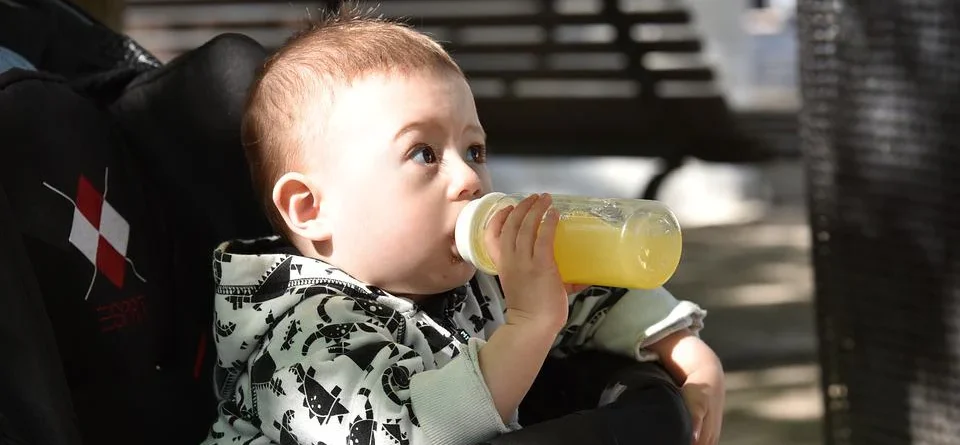



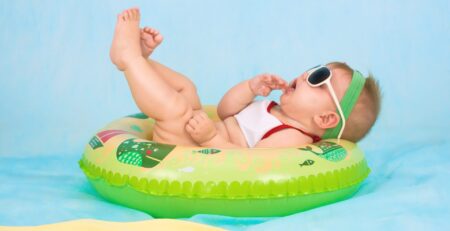

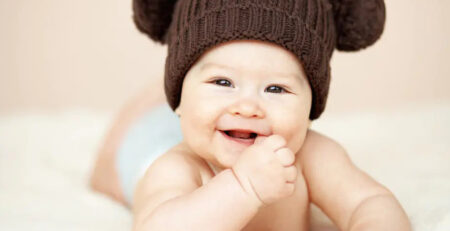
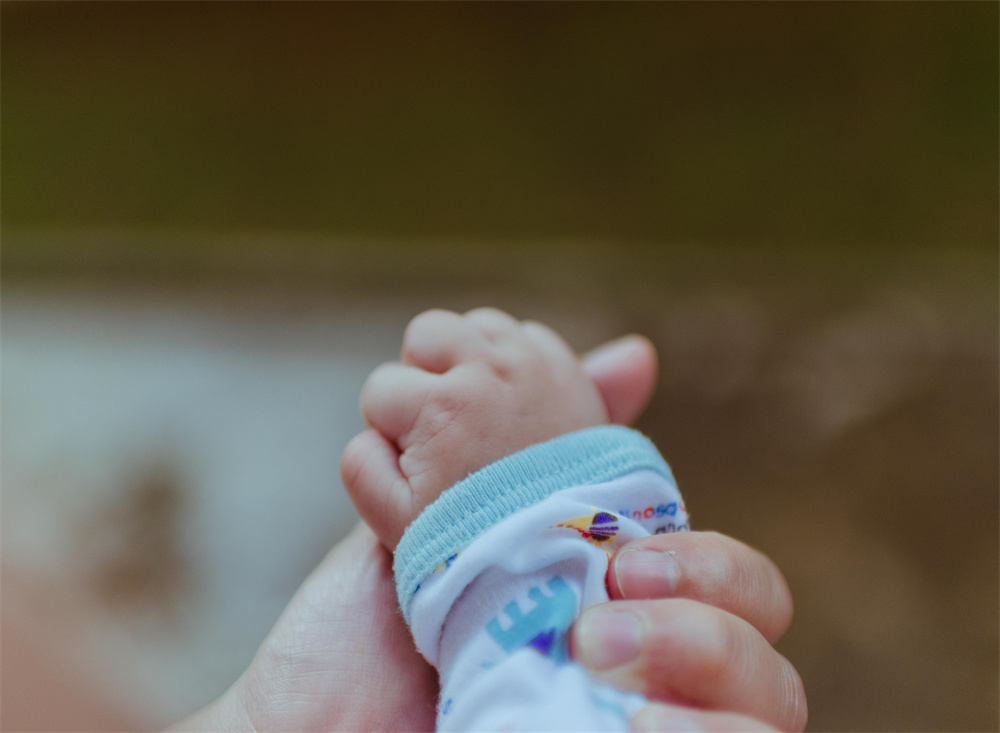




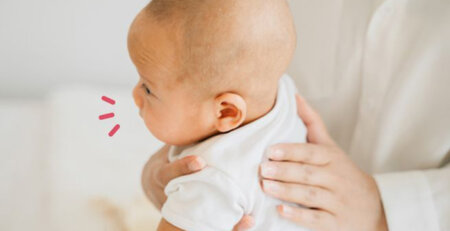
LEAVE A COMMENT